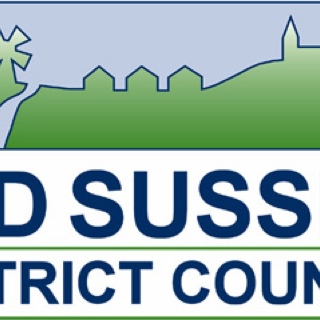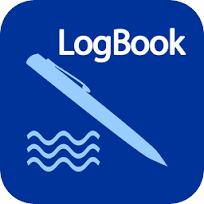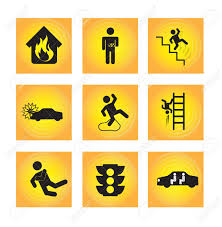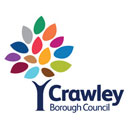Title Page
-
Document No.
-
Audit Title
-
Client / Site
-
Conducted on
-
Prepared by
-
Location
-
Personnel
-
Document number = YYMMDDHH
Title = Operation name or type of incident
Client= target audience
STRATEGIC
S - Strategy
-
What is the plan for now/the next few hours/days?
T - Tactical
-
Have you got all you need in place to achieve your objectives? Has military aid been considered? Any gaps?
R - Resources
-
Do you have everything you need now and in near future (people, assets, mutual aid)? Do you need any support from Government?
A - Anticipate
-
What is the extent or length of the emergency? When will you transition to recovery?
T - Truth
-
Be honest about any problems and issues and try to suggest solutions to problems. Avoid acronyms. Use plain English.
G - Geography
-
Be ready to provide maps and data on area affected
-
Geography
I - Information
-
Key facts: situational awareness; community/economic/environmental impacts, numbers (confirmed and estimates). Ensure your reporting is sourced correctly (fatalities and casualties- NHS England) and you are communicating effectively between responders and the public
C - Costs & communications
-
record costs. What are the implications? What needs to be communicated to responders, the public and into Government?
E - Experts
-
Have access to knowledgeable staff/organisations to support you
Top Tips
-
Be confident, clear and concise –
Members will want assurance you are effectively leading the multi-agency response or recovery and have considered future risk and contingency arrangements. Where possible speak as the lead voice of the multi-agency structure. -
Know the detail of the situation -
Members may require some detail you may not be familiar with. Acknowledge what information gaps you have and how you will tackle this. -
Have experts present - to support you and provide detail e.g. a STAC Chair, tactical adviser or relevant strategic lead for the type of incident.
-
Tell members where experts are being used to support strategic coordination-
confirm whether the military are involved. -
Prepare written evidence to support your position-
Submit any maps, photographs, supporting data or action plans in advance of the meeting- if you think it’s necessary. -
Answer the questions honestly –
If there is a problem, say so. Be ready to provide details of remedial action taken and offer tangible solutions to problems. -
Represent the whole multi-agency structure.
Be clear where there is effective multi-agency structures in place and where you are working jointly to an agreed strategy / priorities. Highlight where there are process in place to enable joint decision-making, problem-solving and action. Ensure there is input from all necessary responders including category 2 organisations (e.g. energy, water, telecoms, and transport) and the voluntary sector. Highlight where engagement is problematic. -
Be clear on what support you need from Members / CMT / Government
e.g. military support and the outcomes you want to achieve. Is there an international dimension? Are foreign nationals involved? -
Provide advance warning
to Members where you are seeking support or assets (through appropriate channels). Members are willing to help but it must be a two-way dialogue. -
Request a copy of information that has been provided to Members
so you are sighted on what information they may have had access to.
-
Government may decide to activate its central response arrangements through COBR (Cabinet office briefing Room) where an incident is likely to have significant consequences; or threaten a wide area. In recovery, a Ministerial Recovery Group will coordinate Government’s recovery activity. Chairs of Strategic Coordinating Groups or Recovery Coordinating Groups may be invited to participate in these meetings via a teleconference. Chairs are expected to share information on how the local multi-agency response or recovery effort is being managed; reassure ministers that actions are being taken to mitigate impacts (and further risk); and identify where government could help.
FAQ's
Do I phone into ministerial meetings?
-
Officials will usually phone you on a telephone landline. You will provide a name and telephone number in advance via your Government Liaison Officer/Recovery Liaison Officer. HITS or BRENT may be utilised in a CT incident.
Do I dial into ministerial meetings on my own?
-
You may wish to have advisers in the room with you- although you will be expected to be the main speaker. A military commander or technical expert can provide further confidence on the information being given. If there is a Government Liaison Officer (GLO) /Recovery Liaison Officer (RLO) present, include them. Ensure that you have a pre-meeting to agree a united approach. If there are emerging issues, use the GLO to forward information to ministers in advance.
What should I expect from ministers?
-
All ministers have their own style of questioning. Speak to your GLO/RLO who will provide guidance on styles. Ministers will have high expectations. You may not always have access to the required detail early on. Be open and honest with ministers with what information is available and provide an indication of a timescale for providing more detailed replies and a full response.
What should I expect from ministers?
-
All ministers have their own style of questioning. Speak to your GLO/RLO who will provide guidance on styles. Ministers will have high expectations. You may not always have access to the required detail early on. Be open and honest with ministers with what information is available and provide an indication of a timescale for providing more detailed replies and a full response.
Do I phone into ministerial meetings?
-
Officials will usually phone you on a telephone landline. You will provide a name and telephone number in advance via your Government Liaison Officer/Recovery Liaison Officer. HITS or BRENT may be utilised in a CT incident.
Ministerial expectations are unrealistic – what do I do?
-
Provide reassurance that you have a grip of the situation or, if not, then why not. Assure ministers that information will be available and agree a timescale and format for providing it.
How should information be presented?
-
Provide reassurance that you have a grip of the situation or, if not, then why not. Assure ministers that information will be available and agree a timescale and format for providing it.
How do I communicate with ministers after the meeting?
-
You should make use of your GLO/RLO to seek any additional advice or submit papers. You may be requested to participate in a multi response or recovery coordinating group– or you may request one to be activated.
Can I ask for help from central government?
-
Ministers are keen to understand the situation and offer what help they can. Do not be afraid to ask. However, If you are asking for help be very specific on what the “ask” is and the outcome you want to achieve.
What should I do if there is more than one SCG/RCG Chair dialling into the meeting?
-
If it is a multi-area approach and more than one SCG/RCG is reporting on the call it is worth you talking to other chairs to identify similar and different issues. This will demonstrate to ministers that you are working together. It will identify any assistance that is required over multiple areas. Be aware that ministers may decide to spend more time on one area than another. Be patient.
How much information do ministers want?
-
Ministers will have access to a commonly recognised information picture (CRIP), prepared by officials. Ministers will want to establish the essential local facts but be ready to provide supplementary information backed up with written advice should it be required. Ask your GLO/RLO for any CRIP information relating to your situation.
Should I report from sub-groups?
-
Yes. If this is relevant. For example, if STAC have met and produced supporting scientific evidence then this should be referenced.
What issues am I likely to be asked about?
-
This will be very much dependent on the nature of the response or recovery situation. Some things you may wish to consider in response:
• Has a major incident been declared? If not then why not? Are multi agency strategic structures in place? Is JESIP being followed?
• Numbers/source of fatalities/casualties
• Social/community tensions/ background of victims?
• Establishment of casualty bureaux/rest centres
• Are hospitals and the health sector working effectively?
• What is the worst case scenario? Anything that could emerge which ministers need to know about?
• Impact on important local infrastructure or critical national infrastructure.
• Economic and environmental impact? Indicative costs?
• Are you developing a recovery strategy?
• Do you have all the relevant sub groups in place?
• Are there any media issues? Have your comms teams communicated with Government?
• Are you making full use of information sharing capability (RD)
Where can I access situational awareness quickly?
-
ResilienceDirect is the government’s secure digital platform to share information and is supported by JESIP. JESIP doctrine also supports the concept of a Multi-Agency Information Cell (MAIC) at an SCG to support situational awareness and decision making.
What other meetings will I be invited to?
-
As an SCG Chair you are likely to be invited to a COBR or another ministerial meeting. In recovery, you may be invited to a Ministerial Recovery group or participate in bi-laterals with a smaller group of ministers. In all cases apply the top tips and ensure you are clear on the purpose of the meeting and how the information you are providing is feeding into Government. If you are unsure then speak with your GLO/RLO.
Who will chair or participate in ministerial meetings?
-
Meetings could be chaired and attended by a variety of ministers. In a major event the Prime Minister would chair COBR. The Secretary of State from the lead government department responsible for response or recovery would chair e.g. DEFRA SoS for a flooding emergency. Other Cabinet Ministers (or deputies) from across government will be present. Senior officials may be present to provide support or technical advice. Where the PM chairs, a larger number of ministers may be involved. If you flag a problem or seek assistance you need to be very prepared to explain the situation why that request is being made.














